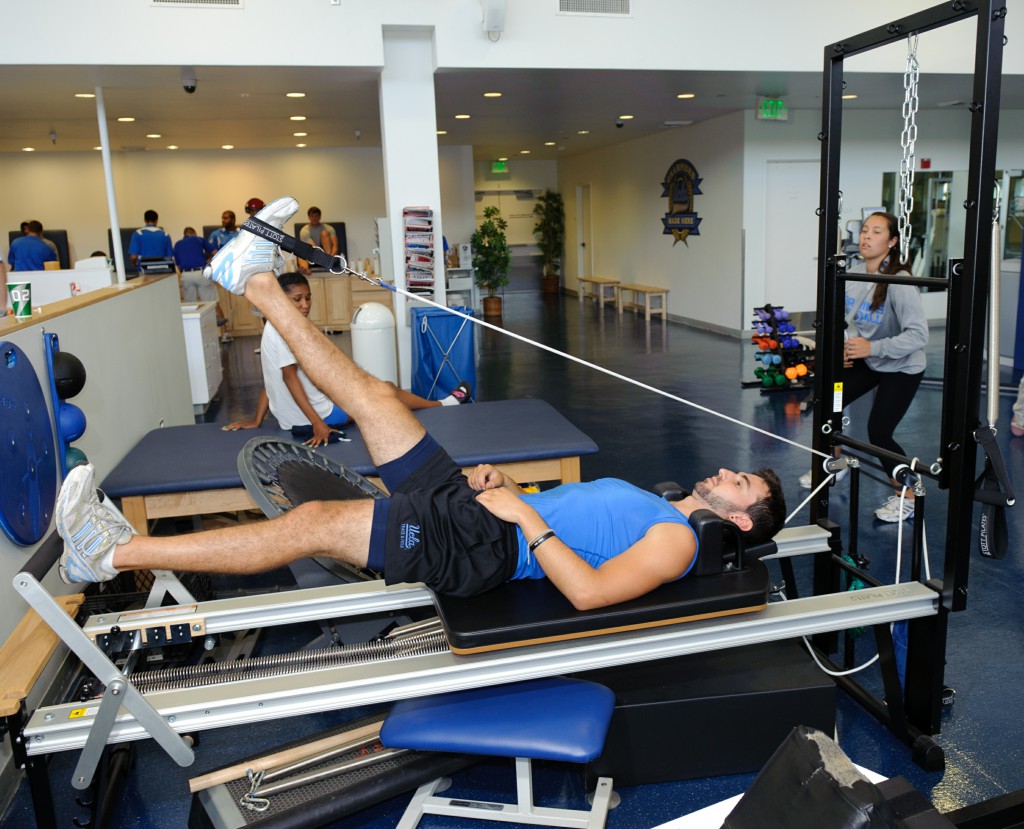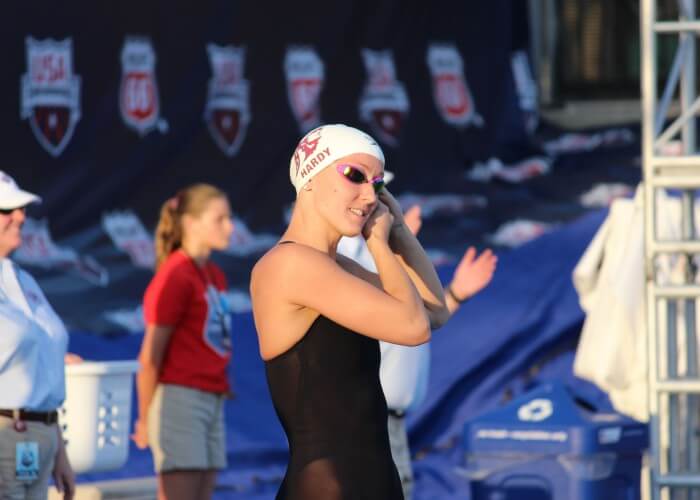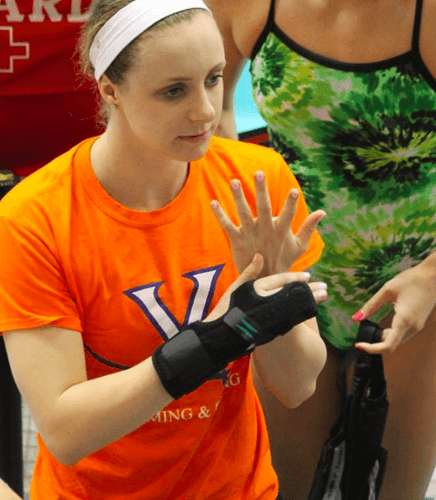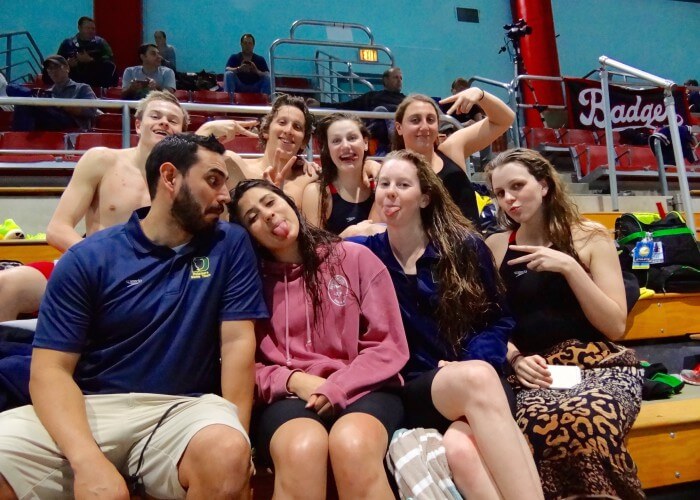3 Ways to Mentally Overcome an Injury

By Courtney Bartholomew, Swimming World College Intern
I still vividly remember the day I injured my back during my freshman year of college. As a team, we were all in the weight room for the first time since our mid-season meet. I recall picking up the weights bar for a deadlift and feeling intense pain travel all the way down through my toes. The pain alone was hard to bear, but finding out I had a bulging disc in my back and would need to take significant time out of the water to recover was enough to make me question my swimming goals.
Swimming is not a sport that requires physical contact and is not typically strenuous on the joints. However, during my swimming career I have encountered teammates, close swim-friends, and other swimmers with injuries.
Due to the very nature of our sport, we want to get back in the water as soon as possible to keep improving. However, in the case of injuries, this mentality can prolong an athlete’s recovery period. It is important to let the body heal and to come up with a plan for recovery.
Here are three things to think about when facing an injury:
1. Keep Your Goals in Mind

Photo Courtesy: Griffin Scott
Setting goals at the beginning of a season represents a clean slate for the upcoming months. Swimmers can pick goal times, work on technique, or even set attitude goals to work on each day at practice. However, when setting these goals at the beginning of a season, most individuals do not plan on an injury being part of the picture. Injuries cannot be planned, and even if they could, there is never a good time for one.
Injuries take time to heal and recover from. Not only do some injuries take time, but they can also require the individual to change habits or create a new routine. This process of healing requires patience and perseverance to get the individual back to normal. Because an injury requires patience between the diagnosis, figuring out a plan for recovery, and waiting until one is healthy enough again to compete, it is easy to develop a negative mindset. While having an injury allows for negative thoughts to come into your mind, it is important to keep a positive attitude and remember the goals set at the beginning of a season.
By keeping the goals set at the beginning of a season in mind, one can figure out other ways to work towards achieving those dreams. For example, if an individual has a hand injury, they can work on improving kicking. Injuries require the individual to think outside of the box in terms of finding ways to achieve their goals.
2. Don’t Let an Injury Become an Excuse

Photo Courtesy: Kaitlyn Jones
It is very easy to let an injury become an excuse for why an individual cannot work towards a goal. While it is easy to blame the pain for why something cannot be done, this mentality will not help an individual to reach goals or even help the body to heal. Instead of dwelling on why something cannot be done due to an injury, an individual should be asking, “What can I do to help my recovery?” or “What can I be doing right now to keep working towards my goals?” By expecting and accepting the pain and injury, instead of letting the injury control the situation, an individual can find better ways to improve as an athlete while keeping a more positive attitude.
3. Lean on Others for Support

Photo Courtesy: Kalina DiMarco
Injuries have the ability to pull an athlete away from working out with the team or even being able to travel and compete. This can make an individual feel as though they are not contributing to the group dynamic or as if they no longer make an impact. During this time it is important to lean on teammates and coaches for support.
When I was out of the pool working on rehabilitation for my back, it was very easy to focus only on my injury and myself. By focusing on myself, I was only retreating further into my pain and removing myself further from the group. However, by cheering my teammates on through tough practices, talking with my coaching staff and athletic trainers about what I could be doing to get better, and leaning on my family for support, I found that it was easier to have a positive attitude. Not only that, but by cheering for teammates and doing all I could outside of the pool for rehabilitation, I felt as though I was contributing to the team dynamic and that I was making an impact, even if it was not in a typical fashion. Not only was I contributing to the team in a new way, but my teammates were supporting me through the injury. Seniors would take time from their busy days to drive me to and from doctors appointments. Other teammates would offer words of encouragement whenever they saw me.
Dealing with an injury is never easy. By keeping goals in mind, not treating the injury as an excuse, and leaning on others for support can make the process of handling an injury an easier time period.




Bertrand
Lorie Oxford Baldwin for Brianna